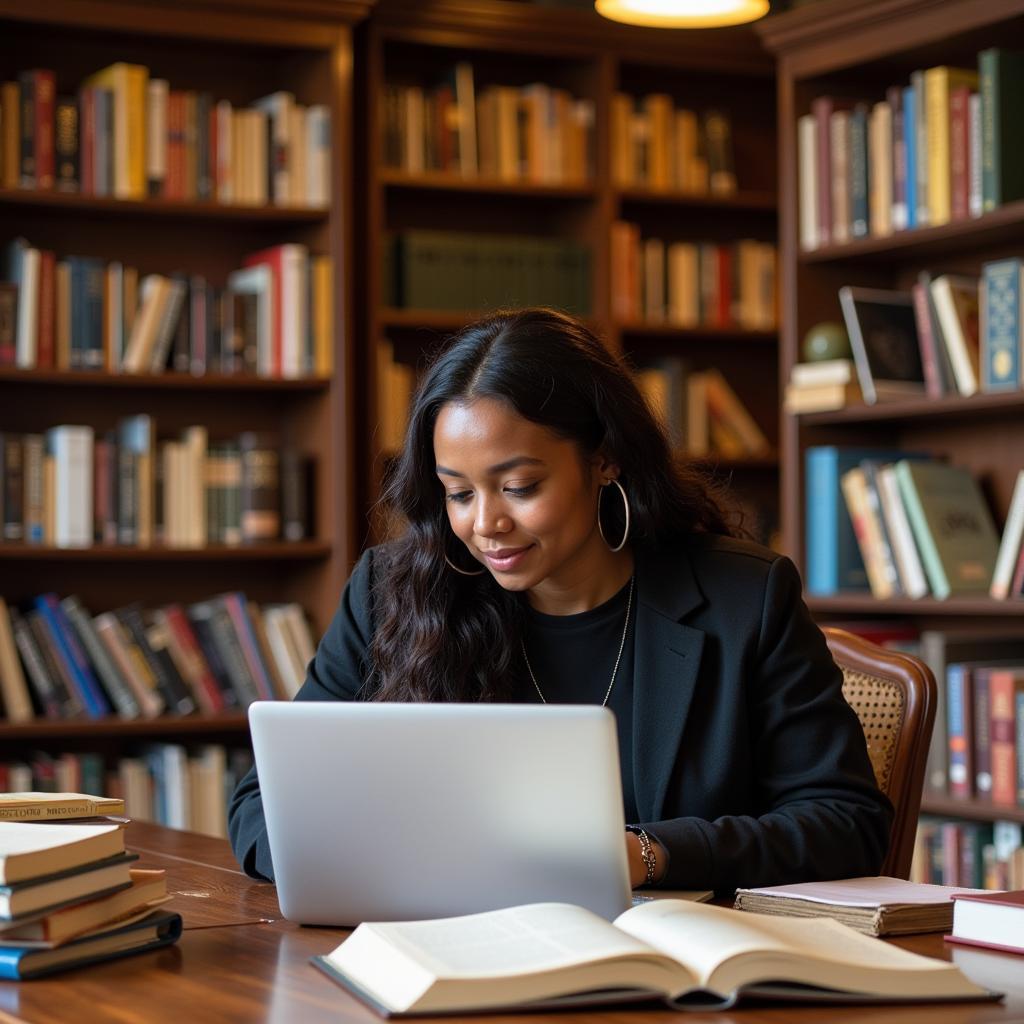Exploring the Rich African Archives London
African Archives London offers a fascinating glimpse into the diverse history and culture of the African continent. These invaluable resources hold a wealth of knowledge, from historical documents and photographs to audio recordings and films, shedding light on everything from pre-colonial societies to the struggle for independence and beyond. This article delves into the significance of these archives and how they contribute to our understanding of Africa.
Accessing African archives in London provides a unique opportunity to engage with the complexities of the continent’s past and present. Whether you’re a seasoned researcher, a student, or simply curious about African history, exploring these collections can be an enriching experience. They offer primary source materials that paint a vivid picture of African Life across different eras and regions. These collections help us understand the diverse narratives and untold stories that shape the African identity.
Uncovering Hidden Histories: A Journey through African Archives London
Numerous institutions in London house significant collections relating to Africa. These include the British Library, the National Archives, the School of Oriental and African Studies (SOAS) Library, and the Royal African Society. Each archive holds its own unique treasures, offering diverse perspectives on African history and culture. From colonial administration records to personal letters and diaries, these archives provide invaluable insights into the lives of individuals and communities across the continent.
What can you find in African Archives London?
African archives London contain a wide range of materials, including:
- Colonial Records: These documents provide insights into the administrative systems, policies, and impact of colonial rule in Africa.
- Missionary Archives: These collections often contain letters, diaries, and photographs documenting the activities of missionaries and their interactions with African communities.
- Personal Papers: Letters, diaries, and photographs offer intimate glimpses into the lives of individuals, their experiences, and their perspectives on historical events.
- Photographs and Films: Visual materials provide a powerful window into the past, documenting landscapes, people, and everyday life in Africa.
- Audio Recordings: Oral histories, music, and other audio recordings capture the sounds and voices of Africa, preserving cultural traditions and historical memories.
These diverse materials allow researchers and the public to explore a multitude of topics, from pre-colonial societies and the transatlantic slave trade to the rise of nationalism and the post-independence era.
The Importance of Preserving African Heritage in London
Dr. Abena Oduro, a renowned historian specializing in West African history, emphasizes the crucial role of these archives: “Preserving African heritage in London is not just about safeguarding the past; it’s about empowering future generations to understand their roots and engage with their history in a meaningful way.”
The preservation of African archives in London plays a vital role in ensuring access to these invaluable resources for researchers and future generations. These archives provide essential context for understanding the complexities of African history and its impact on the present.
Navigating the African Archives: Tips for Researchers
- Plan Your Research: Identify the specific archives and collections relevant to your research topic.
- Contact the Archives: Inquire about access policies, opening hours, and any restrictions on accessing materials.
- Utilize Online Resources: Many archives have online catalogs and databases that can help you locate relevant materials.
 Researching African Archives at SOAS Library
Researching African Archives at SOAS Library
Dr. Kwame Asante, a leading archivist specializing in African archival materials, shares his advice: “Exploring these archives can be a truly transformative experience, connecting us to the vibrant tapestry of African history and culture.”
Conclusion: African Archives London – A Gateway to Understanding Africa
The African archives London offer an invaluable resource for anyone seeking to delve into the rich history and culture of the continent. These collections provide a unique opportunity to uncover hidden histories, challenge existing narratives, and gain a deeper understanding of Africa’s past, present, and future. By exploring these archives, we can connect with the diverse stories and experiences that have shaped the continent and its people. African archives London are not just repositories of the past; they are gateways to understanding Africa.
FAQ
- What are the main African archives in London? The main archives include the British Library, the National Archives, the SOAS Library, and the Royal African Society.
- What kind of materials can be found in these archives? You can find colonial records, missionary archives, personal papers, photographs, films, and audio recordings.
- How can I access these archives? Contact the specific archive for information on access policies and opening hours.
- Are there online resources available? Many archives have online catalogs and databases to help with research.
- Why are these archives important? They preserve African heritage and provide valuable insights into African history and culture.
- Who can use these archives? Researchers, students, and anyone interested in African history can utilize these resources.
- What is the focus of African archives London? The focus varies but generally covers the history and culture of Africa, often with a focus on the colonial period and its impact.
Scenarios and Common Questions
Scenario: A student is researching the impact of colonialism on education in East Africa.
Question: Where can I find primary source documents related to colonial education policies in East Africa?
Answer: The National Archives and the SOAS Library are good starting points.
Scenario: A filmmaker is creating a documentary about the independence movements in West Africa.
Question: Are there any archival film footage or photographs of the independence celebrations in West Africa?
Answer: The British Library and the Royal African Society might hold relevant visual materials.
Further Exploration
For those interested in pursuing further studies, consider exploring African Art History Graduate Programs.
Contact Us
For further assistance, please contact us:
Phone: +255768904061
Email: [email protected]
Address: Mbarali DC Mawindi, Kangaga, Tanzania
We have a 24/7 customer service team ready to help.
